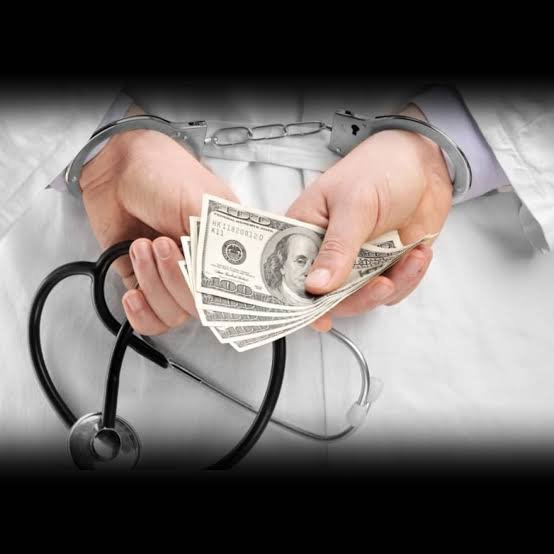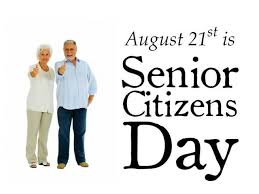National Report Kickback Fraud Day – September 18, 2022, history,why we celebrate
National Report Kickback Fraud Day is held annually on September 18 in the United States to highlight the difficulties and crises caused by various forms of kickback fraud. There is a pressing need to raise public awareness of kickback fraud, which costs the federal government more than 10% of its budget each year. One important focus on this day is educating the public on the specific methods for reporting kickback fraud.
In light of the government’s ongoing projects, which generate billions of dollars in spending, fraudsters increasingly take advantage of gaps to steal money.
HISTORY OF NATIONAL REPORT KICKBACK FRAUD DAY

While the history of fraud dates back to the beginning of economic transactions, kickback fraud became prevalent in the 20th Century. One of the most common types of government corruption is kickback.
When Congress realized that employers during the Great Depression were plotting to avoid wage standards in federal contracts, it created the first anti-kickback statute, the “Copeland Act”, in 1931. The statute, which is still in effect, prevents major infrastructure contractors from compelling their employees to ‘kickback’ or return any portion of the wages to which they are due under their employment contracts.
The Medicare and Medicaid programs, which were established in 1965, provided health insurance to millions of Americans. The programs’ huge wallets and faulty reimbursement processes quickly led to fraud, waste, and abuse. More patients equated to an increase in claims, which in turn increased revenue for medical service providers. Congress created the Anti-Kickback Statute in 1972 in an effort to guarantee that only necessary commodities and services were provided to Medicare and Medicaid users.
Despite the Anti-kickback law’s broad scope, its disciplinary power was constrained, making it less effective as an enforcement instrument. Congress changed the law in 1977, making kickback offenses punishable by up to five years in jail. Additionally, it extended the text of the law to prohibit ‘any compensation’ offered in exchange for referrals.
The 21st Century brought a sharper spotlight on the repercussions of kickback fraud on the government and the general public. These worries prompted Joel D. Hesch, founder of The Hesch Firm, to establish a kickback fraud awareness day and launch a campaign to assist the government in combating the rise in kickback fraud.
NATIONAL REPORT KICKBACK FRAUD DAY TIMELINE
1920
The Birth Of The Ponzi Scheme
Charles Ponzi develops a scheme that swindles investors out of over $20 million.
1931
The Copeland Act
Congress enacts the first anti-kickback law.
1965
Healthcare Insurance Begins
Loose healthcare insurance plans lead to the rise of kickback fraud.
1980s
The Rise Of Electronic Fraud
Technology-mitigated fraud begins in the United States.
HOW TO OBSERVE NATIONAL REPORT KICKBACK FRAUD DAY
Make a pledge
Make a national report kickback fraud day pledge to yourself to be aware of potential kickbacks and to refuse them if offered. Also, educate yourself on the many types of kickback fraud. This way, you’ll be able to spot any potential problems.
Raise awareness
Share information about National Report Kickback Fraud Day on social media or with your friends and family to help raise awareness about the issue. Encourage those around you to learn more about kickback fraud in order to reduce its negative impacts on society.
.
Report any case
Contact your local lawmakers and ask them to take action to prevent and prosecute kickback schemes. Complimenting them on their accomplishments is another effective technique to push them to do more.
5 SHOCKING FACTS ABOUT FRAUD YOU SHOULD KNOW
Americans top the list of scam victims
When it comes to the top ten scamming countries, the U.S. is almost always at the top of the list.
Credit card fraud remains the most common
Credit card fraud is often more prevalent with new accounts and cards, accounting for roughly 40% of the top five fraud types.
There’s a rise in childhood identity theft
Every year, over one million children have their identities stolen as a result of using the internet to play games or make online purchases.
The elderly are among the most vulnerable
Scam data reveal that scammers are more likely to target lonely or vulnerable persons who are more ready to engage in conversation.
Over 80 million fake Facebook accounts
As the social media platform continues to make online dating easier, the number of phony profiles grows.
WHY NATIONAL REPORT KICKBACK FRAUD DAY IS IMPORTANT
It’s an opportunity to raise awareness
It’s an excellent method to raise awareness about national report kickback fraud and the harm it can cause to taxpayers, businesses, and the economy. The more people who are made aware of the implications, the more likely they are to avoid and report any incidents.
It helps to build stronger firewalls
It allows taxpayers, businesses, and government officials to learn more about national report kickback fraud and how to prevent it. The quantity of money lost can be continuously lowered by understanding the techniques used by these con artists.
It’s a great source of motivation
It recognizes the accomplishments of groups and individuals who have fought against national report kickback fraud. And shows the functioning blueprints they employed to create success for others to emulate and follow.
NATIONAL REPORT KICKBACK FRAUD DAY FAQS
Are kickbacks embezzlement?
Indeed, kickbacks are illicit payments made in exchange for preferential treatment or subpar performance. They are considered bribery, and both the payer and the receiver might face criminal charges.
What is the punishment for kickbacks?
The Federal Anti-Kickback Statute is a criminal statute, and consequences for violators can be severe. They include fines of up to $25,000 per violation, felony convictions punishable by imprisonment for up to five years, or both, and possible exclusion from participation in Federal Healthcare Programs.
What are illegal gratuities?
An illegal gratuity is when someone gives something of value to a public official in exchange for that public official doing or failing to do something. An example of an unlawful gratuity is when a county commissioner votes in a way that a person happens to agree with.
Sandeep Raiza — Content Writer, Website Designer, SEO Strategist, and WordPress Expert AI specialist delivering impactful digital solutions that drive business growth.Combining creative storytelling with technical expertise.




